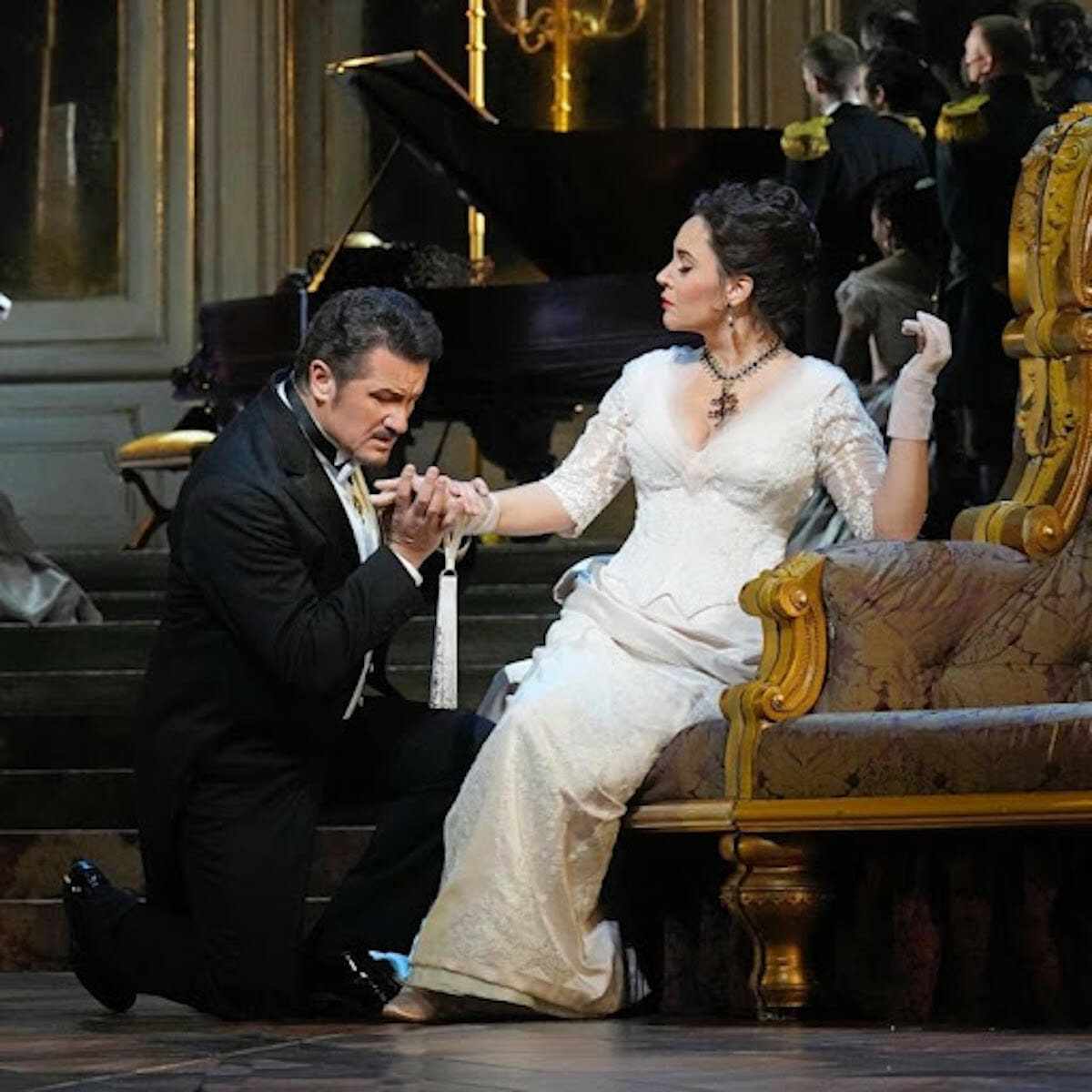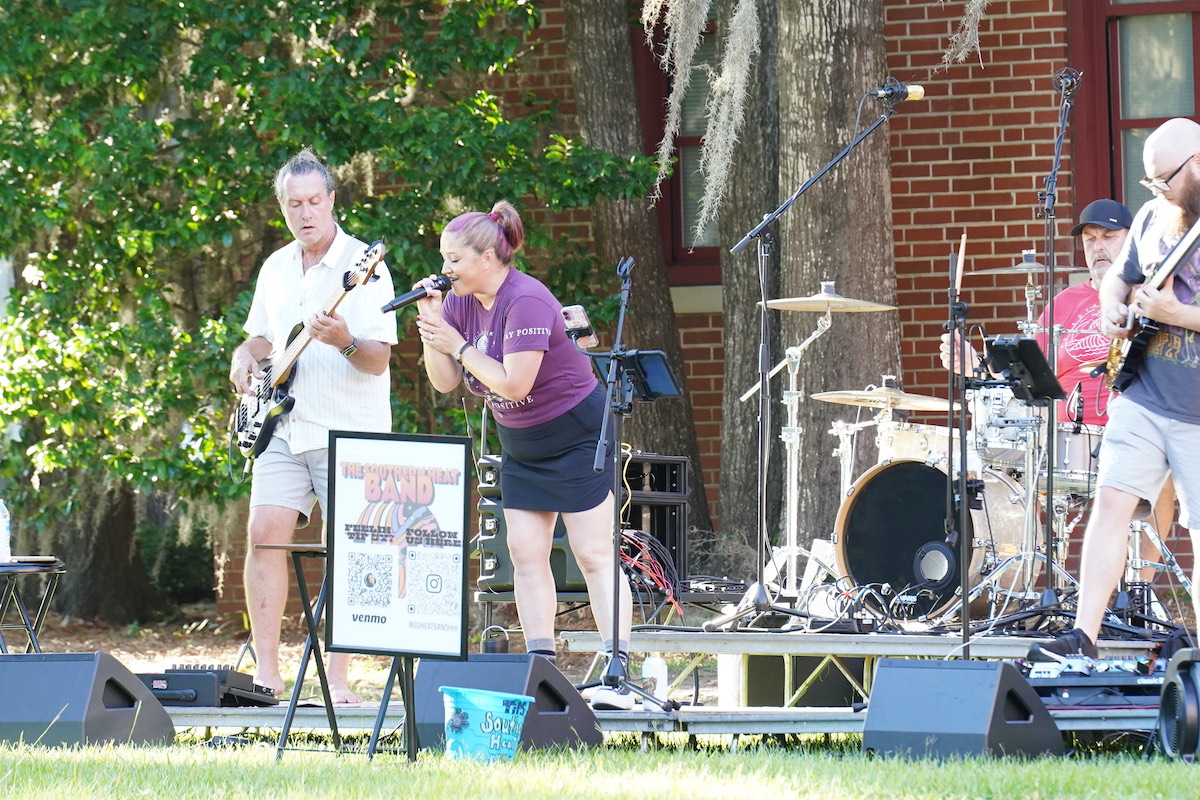By Becky Sprecher
Special to The Island News
In 1994, my husband and I flew from our home in Honolulu to London, a journey of almost 24 hours. Our hotel was a stone’s throw from the Royal Opera House at Covent Garden, so we stopped by the ticket office and managed to get inexpensive Amphitheater seats for that night’s performance.
The opera was Fedora. And not only that, superstars Mirella Freni and Jose Carreras were singing. After lunch and a nap, we appeared that evening at the Amphitheater entrance located at the side of the opera house, the far grander front entrance being reserved for elegantly dressed, higher-priced ticket holders.
We found our seats, and mine was located adjacent to a wall. Not long into the opera, the 12-hour time change and jet lag began to kick in and my began head nodding, finally coming to rest against the wall. I woke up as the two glamorous stars were singing a spectacular love duet in Act II, then went out again after Intermission during Act III. I was awakened at the end by a cheering audience and the backstage crew flinging a cascade of long-stemmed yellow roses from the boxes down to the stage.
Now, almost 30 years later, I want to see what I missed.
Fedora was composed by Umberto Giordano in 1898, and based on a story by the dramatist Victorien Sardou, who wrote it specifically for the talented stage actress, Sarah Bernhardt. The title character is a 19th-century Russian princess who is about to marry Vladimiro when he is killed. She suspects Count Loris of the murder and reports it to the authorities, and this sets off a chain of events that she comes to regret.
Unfortunately, Fedora later finds herself falling in love with Loris. He reveals to her that he killed Vladimiro in self-defense when he (Loris) confronted him about having an affair with his wife. Loris also tells Fedora that Vladimiro didn’t love her but was marrying her for her money. Loris has no idea what Fedora has done.
Such a conflicted situation is an emotional roller coaster for the person singing the title role, in this case, the Bulgarian soprano Sonya Yoncheva.
“Giordano gets really complicated in some of his writing,” Yoncheva told Opera News, “especially in the second act of Fedora. One really has to understand and concentrate on the action, and this complicated music, which is not always easy to digest. But in Giordano’s operas, there are moments of incredible light, you know? And this is where you fall in love with him.”
Fedora is an example of a verismo opera, a genre popular in the late 19th and early 20th centuries that emphasizes intense emotional power and the plight of everyday people. The characters are not drawn from mythology or the throne room; while they may indeed be aristocratic, they are recognizable to us, as are their struggles.
This is not where you are going to hear coloratura or ornamental singing; it’s going to be straight-out, gut-wrenching, and emotional. The composer also inserts verismo notes in the score with background sounds, such as sleigh bells in the Russian winter setting.
This is a stylish new production, with luxe dresses all in shades of black and white. The New York Times reports that, at the New Year’s Eve premiere when Yoncheva made her entrance “wearing a dramatic raven-color dress with a many-diamonded tiara, the crowd erupted in wild applause reminiscent of the diva entrances in days gone by.”
The set offers eye candy, too. According to the Met Program, a clever design by David McVicar, takes us from “a palace in St. Petersburg, to a fashionable Parisian salon, and a picturesque villa in the Swiss Alps by unfolding like a Russian nesting doll.”
And there is ear candy to offset the tragedy: a riff on a concert by a Chopin like character, a Bicycle Aria (a nod to the new craze in 1890s Europe), a salon song about Russian women and another about French men, comparing the latter to Veuve Cliquot Champagne (i.e. they either leave one bored or with a headache).
In the tragic last act, Fedora has caused Loris to be exiled, his brother to be imprisoned (where he subsequently dies), and his mother to die of a stroke because of the death of her son. She is consumed by guilt. In the same moment she also realizes that Loris, who has vowed to avenge the deaths of his family by exposing and punishing the woman who betrayed them, will never forgive her. She drinks poison from a vial around her neck then confesses and dies in his arms, begging for his mercy while he begs her to forgive his anger.
This last is definitely melodrama. Who wears a vial of poison around their neck? Was this all the rage in Paris in the 19th century or just a device in service of the plot? Who cares. At this point, we’re drowning in beauty and tears from the singing, the music, and the pain of the star-crossed lovers. This is a good old-fashioned, cry-it-out opera. Some may say it’s melodrama; I say it’s therapy.
Bring Kleenex.
Want To Go?
What: Fedora by Umberto Giordano
When: 1 p.m., Saturday, March 18
Where: USCB Center for the Arts
Tickets: $22, $20 for OLLI members. Book online at the Center for the Arts website or purchase
at the door.
Run Length: 2 hours, 25 minutes with a 30-minute intermission between Acts II and III








